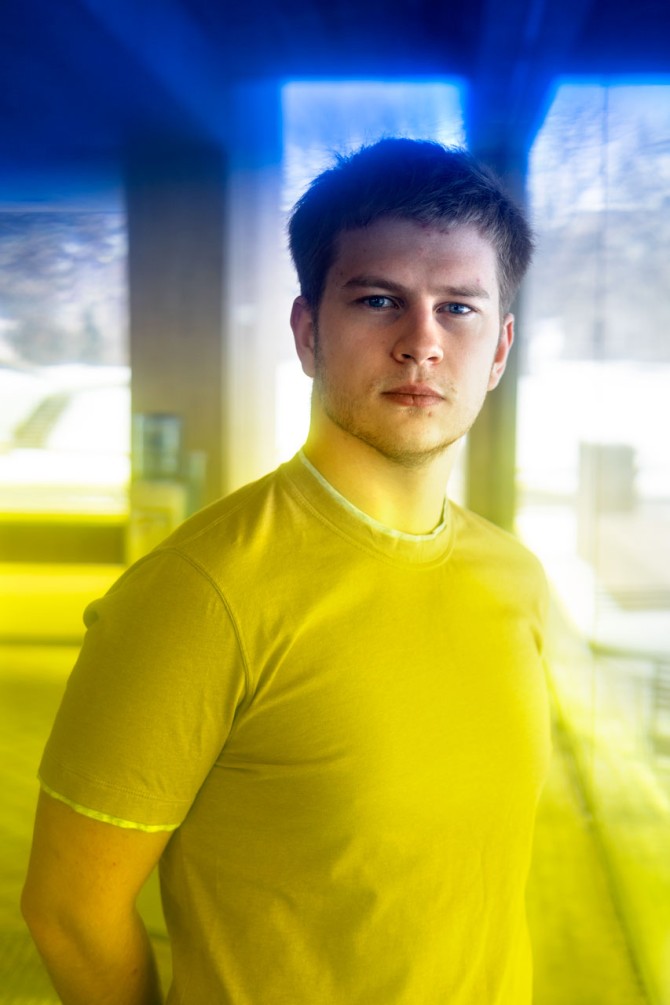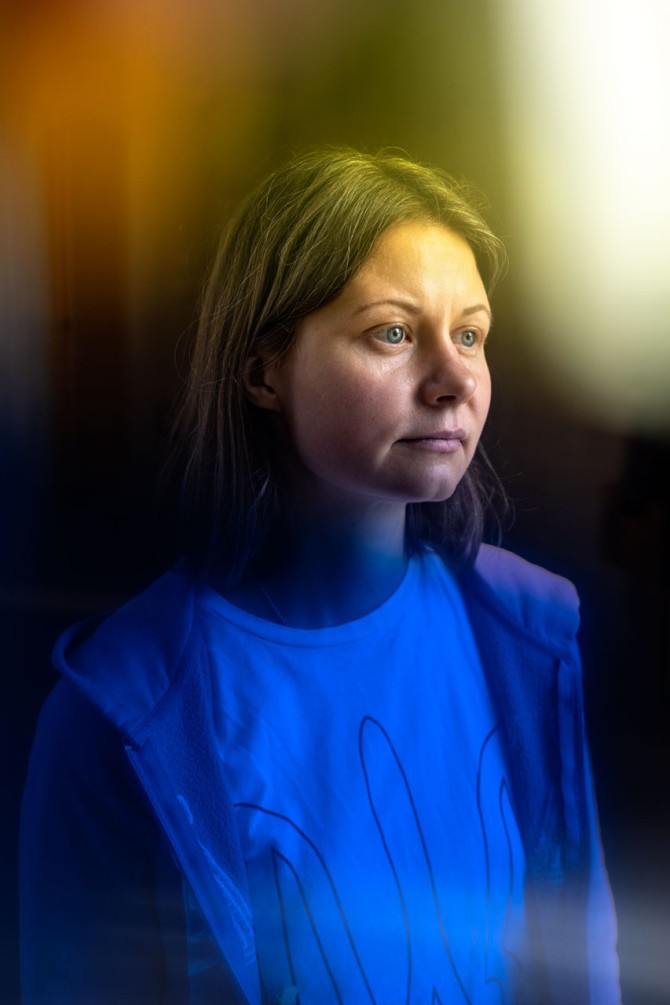Ukrainian Cornellians look homeward with anxiety, concern
By Susan Kelley
About 90 minutes after Russia invaded Ukraine, Vlad Matsiiako, M.S. ’22, saw a terrifying sight: an online news video showing his family’s house in the city of Dnipro, Ukraine, and bombs exploding just 13 miles away, near the airport.
“It was very scary. I didn’t even know what to think,” he said. About five minutes later, he got a call from his mother, saying she, his father and sister in Dnipro were safe.
“The most important thing right now is not to panic,” he said. “It’s overwhelming, with news reports coming out every five minutes.”
Matsiiako is among the handful of Ukrainian students and researchers at Cornell; their thoughts have turned toward their loved ones’ safety and their country’s future as they absorb the ongoing news of Russia’s invasion, which began Feb. 24. It is the first major land war in Europe in decades.
“These students have been thrust into a heartbreaking situation by the deplorable and unprovoked attack on their country,” said President Martha E. Pollack. “We will support them in every way we can.”
Pollack is part of a coalition of more than 500 college and university presidents calling on the federal government to issue a Temporary Protected Status designation for Ukrainian nationals, which would provide work permits and protection from deportation for those who cannot safely return home, and announce Special Student Relief, to prevent Ukrainian students in the U.S. from losing their visa status.
Administrators at Cornell are continuing to reach out directly to Ukrainian students and offering assistance; Global Cornell has also provided information about resources.
“As the attacks on Ukraine intensified, I reached out to graduate, professional and undergraduate students from Ukraine to offer my support and acknowledge that the days and weeks ahead may be difficult to navigate as they manage concern and worry about their loved ones and their country,” said Marla Love, the Robert W. and Elizabeth C. Staley Dean of Students. “I want students to know that there are resources available to assist them in managing life and academics amid the evolving conflict.”
Olga Zimina was up late that night, worried about her husband and mother in Kyiv and her father in Crimea, when she saw Facebook posts from friends in Ukraine, saying they had seen and heard explosions nearby.
“I thought, ‘The war has started. This is a disaster,’” said Zimina, a postdoctoral research associate in the School of Integrative Plant Science in the College of Agriculture and Life Sciences. “I want my family to be safe. I was panicking. My body was shaking. It’s hard to be strong.”
Her family members in Kyiv are sheltering from the attacks in an unheated underground parking garage, where it is cold and difficult to sleep, they have told her. So far, they are safe.
Even so, Zimina said, “It’s a terrible situation.” Ukraine and Russia have distinctive cultures and different mindsets when it comes to government, she said. “Our political life is very diverse. We have a lot of parties – pro-Russian, pro-Ukrainian, some liberals. As a geneticist, I think it’s good to have diversity. I don’t think we would like to have one person who decides for all the nation, for the whole, what to do.
“Ukraine is an independent country, with its own history, culture, language and it has all rights to decide their future,” she said. “Russia has no right to influence our path, our future, our choice.”
Ivan Kosyuk, M.Eng. ’22, whose parents, uncle and grandparents live in Kyiv, says his family is safe and he has been talking with them frequently. “They are outside the active war zone.”
He had been concerned that the world would stand by while Russia invaded Ukraine. But he has been heartened by the international response, including economic sanctions. “I really have high hopes that Russia will feel the economic pain of waging war. People are losing their assets, their property,” said Kosyuk, who is studying financial engineering at the College of Engineering’s School of Operations Research and Information Engineering (ORIE).
“I’m checking my phone every five minutes to see what’s happening, checking different sources, hoping to see more news saying that we are doing great, and if we’re winning, and the world supports us,” he said. “I’m anxious, but hopeful.”
His family has decided to stay in Kyiv for now; his father owns a business and wants to support his employees.
Matsiiako’s father also owns a business and will stay in Ukraine for the same reason, he said. “I don’t know a single person who has left,” said Matsiiako, who is also studying at ORIE. “The level of love for our country is pretty high right now. A lot of people just don’t want to leave it.”
Media Contact
Get Cornell news delivered right to your inbox.
Subscribe


